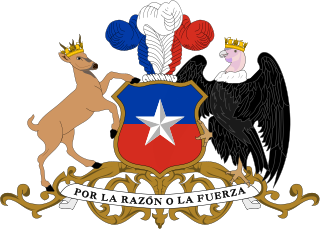
Presidential elections were held in Chile on 4 September 1964. The result was a victory for Eduardo Frei Montalva of the Christian Democratic Party, who received 56% of the vote.
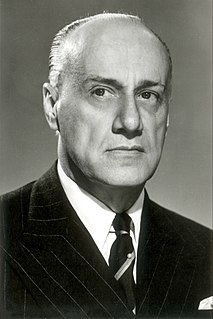
Presidential elections were held in Chile on 4 September 1958. The result was a victory for Jorge Alessandri, who ran as an independent.
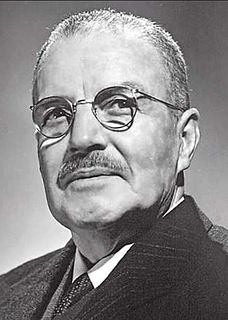
Presidential elections were held in Chile on 4 September 1952. The result was a victory for Carlos Ibáñez del Campo, who ran as an independent.

Presidential elections were held in Chile on February 1, 1942. The result was a victory for Juan Antonio Ríos of the Radical Party, who received 56% of the vote.

Presidential elections were held in Chile on September 4, 1946. The result was a victory for Gabriel González Videla of the Radical Party, who received 40% of the public vote and 75% of the Congressional vote.
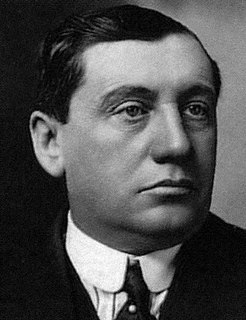
General elections were held in Chile on 30 October 1932. Arturo Alessandri of the Liberal Party was elected president, whilst the Conservative Party and Radical Party emerged as the largest parties in the Chamber of Deputies.

Presidential elections were held in Chile on 4 October 1931. The result was a victory for Juan Esteban Montero of the Radical Party, who received 64% of the vote.

Presidential elections were held in Chile on 22 May 1927, following the resignation of President Emiliano Figueroa. The result was a victory for Interior Minister Carlos Ibáñez del Campo, who ran as an independent and received 98% of the vote.

Presidential elections were held in Chile on 22 October 1925. They were the first direct elections in the country's history and the first to be held under the new 1925 constitution. The result was a victory for Emiliano Figueroa, who received 71% of the vote.
Elections to the Supreme Soviet were held in the Soviet Union on 12 March 1950.

General elections were held in Bolivia on 14 July 1985. As no candidate for the presidency received over 50% of the vote, the National Congress was required to elect a President on 4 August. Although Hugo Banzer of Nationalist Democratic Action received the most public votes, Congress elected Víctor Paz Estenssoro of the Revolutionary Nationalist Movement.
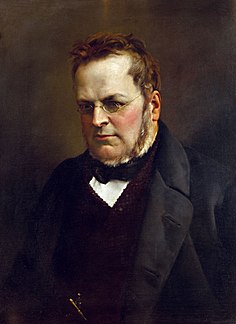
General elections were held in Italy on 27 January 1861, with a second round on 3 February. The newly elected Parliament first convened in Turin on 4 March 1861, where, thirteen days later, it declared the unification of the country as the Kingdom of Italy.

General elections were held in Liechtenstein on 11 March 1918, with a second round on 18 March. They were the first elections held in the country contested by political parties, as the Christian-Social People's Party and Progressive Citizens' Party had been founded that year. The Progressive Citizens' Party emerged as the largest in the Landtag, winning seven of the 12 elected seats.

General elections were held in Macedonia on 16 October 1994 to elect a President and Assembly, with a second round of Assembly elections on 30 October. The presidential election was won by Kiro Gligorov of the Alliance for Macedonia, whilst the parties forming Alliance for Macedonia also won the Assembly elections with 95 of the 120 seats. However, the second round of the Assembly elections were boycotted by VMRO-DPMNE and the Democratic Party, as they claimed there had been irregularities in the first round.

Parliamentary elections were held in the Socialist Republic of Macedonia on 11 November 1990, with a second round on 25 November. They were the first competitive elections in the country's history. VMRO-DPMNE emerged as the largest party, winning 38 of the 120 seats.
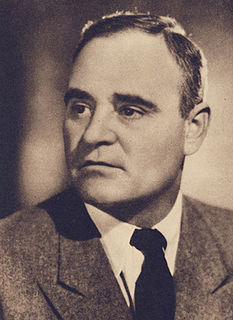
Parliamentary elections were held in Romania on 5 March 1961. Voters were presented with a single list from the People's Democratic Front, which was dominated by the Romanian Workers Party. The Front won all 465 seats in the Great National Assembly.

Parliamentary elections were held in Romania on 2 March 1969. The Front of Socialist Unity, which had been formed a year earlier to replace the People's Democratic Front, was the only organization that contested the election; no prospective candidate could run for office without the Front's approval. Like the People's Democratic Front, the Front of Socialist Unity was dominated by the Romanian Communist Party. The Front won all 465 seats in the Great National Assembly.

Parliamentary elections were held in Romania on 9 March 1975. The Front of Socialist Unity, dominated by the Romanian Communist Party and including other mass organisations, was the only organisation that contested the election. No prospective candidate could run for office without the Front's approval. The Front won all 349 seats in the Great National Assembly.

Parliamentary elections were held in Romania on 9 March 1980. The Front of Socialist Unity and Democracy, dominated by the Romanian Communist Party and including other mass organisations, was the only organisation that contested the election. No prospective candidate could run for office without the Front's approval. The Front won all 369 seats in the Great National Assembly.

Parliamentary elections were held in Romania on 17 March 1985. The Front of Socialist Unity, dominated by the Romanian Communist Party and including other mass organisations, was the only organisation that contested the election. No prospective candidate could run for office without the Front's approval. The Front won all 369 seats in the Great National Assembly. These would be the last single-party elections held in Romania; the Communists would be overthrown four years later.





